Betty Boothroyd: First female Commons Speaker who enhanced the parliament over which she presided
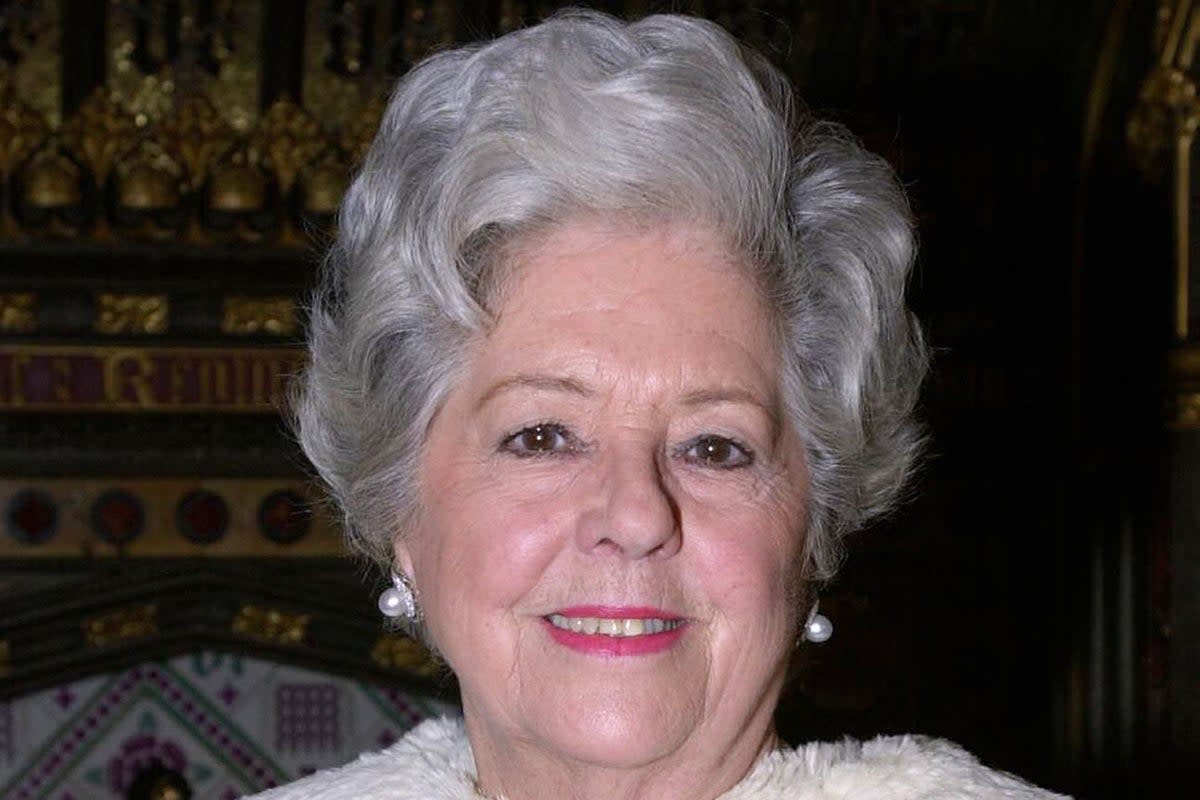
Betty Boothroyd was one of the great proceduralist Speakers of the House of Commons. She was a genuinely decent, gutsy Yorkshire lass of superb bearing and presence, whose public persona was rightly hugely popular in Britain and abroad, and therefore enhanced the ever more miserable and ineffective Parliament over which she presided.
She had an attractive, self-deprecating sense of humour, as emerged on her election as Speaker on 27 April 1992: “I well remember a former Member of this House recalling at a previous election of this kind the qualities which another Speaker had outlined 400 years earlier. Speaker Yelverton thought that the office of Speaker demanded ‘a voice great, a carriage majestical, a nature haughty and a purse plentiful’. How do I measure up to that? Not very well, I fear. I certainly do not possess a purse plentiful. I do not believe that I have been endowed with a haughty nature. It is true that in the past I may have been granted some physical agility; but my carriage is not all that majestical now.
“So what is left? Perhaps only what Speaker Yelverton described as a ‘voice great’. Honourable and Right Honourable Members, with experience here I know that I can use that voice strongly in fairness and justice when the occasion demands.”
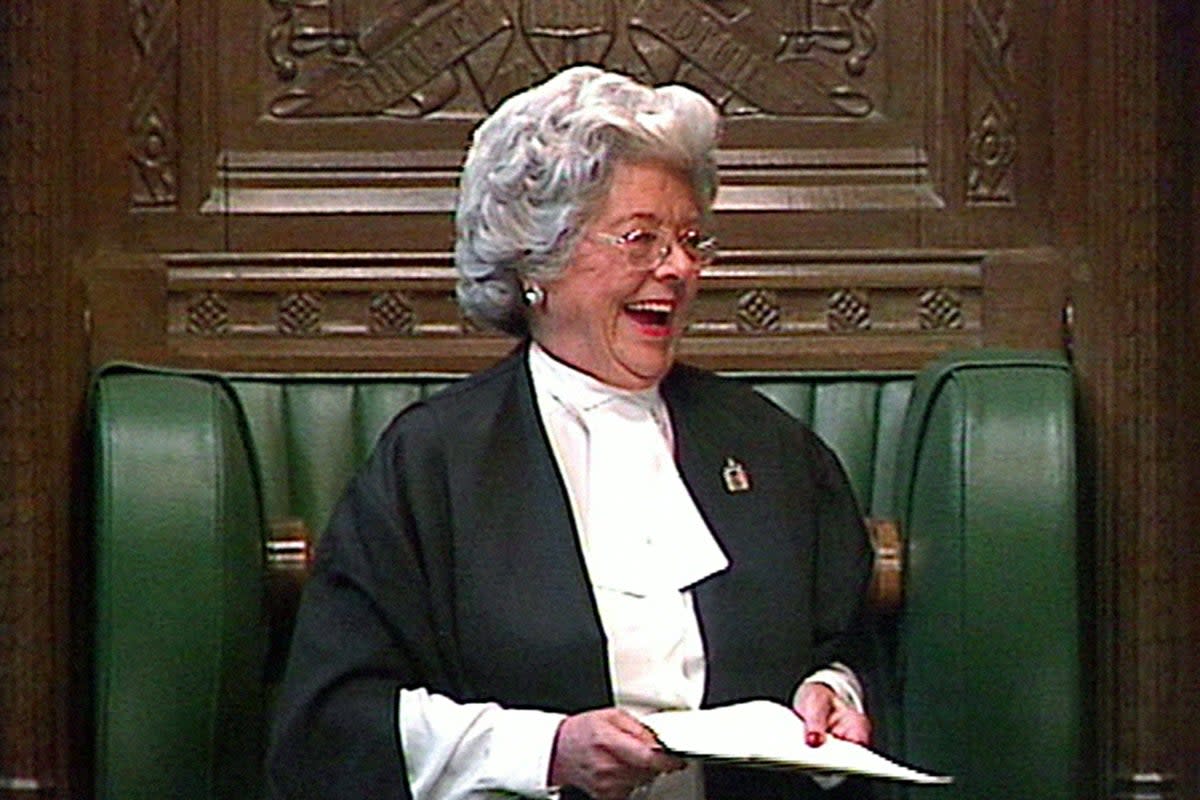
In the increasingly important role, off the Speaker’s Chair, which the job has now acquired, Boothroyd was spectacularly successful. She adorned Parliament. She exuded personality. The voters saw her as an extremely sensible Yorkshirewoman of great charm – she would call John Major, Dennis Skinner and other MPs “luv” – and a thoroughly nice lady, nice in a nice way. And in this the public were spot-on. They made her a megastar and her parliamentary colleagues did not resent her, because she took a lot of trouble over – indeed mothered – many MPs at difficult points.
Boothroyd was compassionate about human frailty. She emanated warmth, and nowhere was that warmth more appropriately displayed than in Speaker’s House, when she was entertaining Inter-Parliamentary Union delegations from abroad. On several occasions after such a dinner, tough-minded politician visitors would describe her as a “memorable hostess”. She left an indelible impression, and it was an excellent impression, of British democracy.
Betty Boothroyd was born in Yorkshire in 1929, the only child of Dewsbury textile workers. “We lived in a part of Dewsbury called Eastborough, a close-knit community in which people shared their problems and looked out for each other,” she once told her late Labour colleague Tam Dalyell, in an unpublished article for The Independent.
Archie Boothroyd was 45 when Betty came along and, like many late fathers, he protected her. “Even when I was a young girl, and going to youth clubs, he would come and collect me. I was never allowed to come home on my own,” she told Dalyell. Archie Boothroyd was an active member of the Dyers, Bleachers and Textile Workers’ Trade Union, and a friend of their long-term general secretary Harry Earnshaw, a member of the then powerful National Executive Committee (NEC) of the Labour Party and chair at the conference in Morecambe of 1952.
In later life, Betty Boothroyd could be heard paying moving tribute on several occasions to the ideas, ideals and discipline of her father, and the way he felt people should behave in society, and the way in which he believed they should behave towards each other. When Dalyell served on the NEC alongside Boothroyd, he said he was aware that in the difficult circumstances of the Liverpool expulsions and much general turmoil in the party, what mattered to Boothroyd was the “behaviour” of Labour colleagues. He recalled that the worst Boothroyd could say of someone was: “He [or she] behaved absolutely disgracefully.”
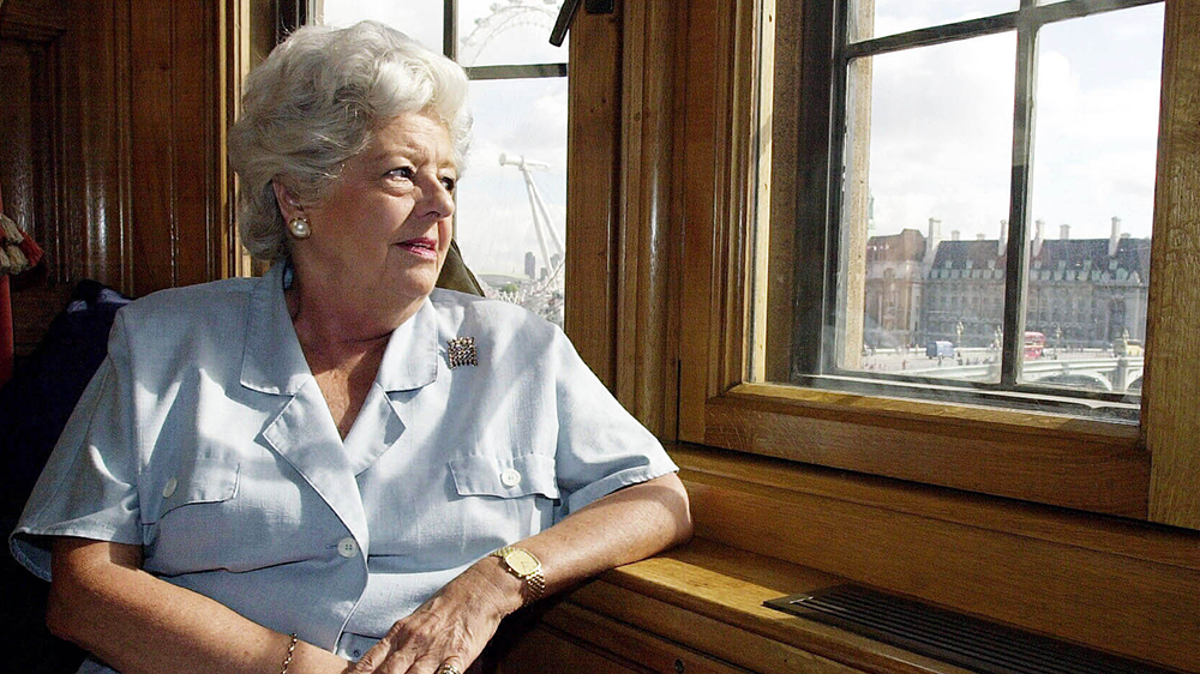
It was a great shock to her when Archie died in 1947, when she was just 18. Her mother, Mary, worked as a weaver until she was 65. Speaking to an all-male important delegation from an Arab country, Madam Speaker, as she had become, is said to have repeated her mother Mary’s frequent remark: “I am not employed for my sex appeal, I am employed because my rate of pay is lower than your father’s.”
From school, she went to Dewsbury College of Commerce and Art, and then to a job in a posh – one of Boothroyd’s favourite words – department store in Dewsbury, at £1 per week, soon raised to £1.50 on account of good performance. Her mother, No 12249, as Boothroyd would recall, belonged to the Co-operative Society, where the dividend was saved for Betty’s dancing equipment.
In the terrible winter of 1946-47 she left home, and went to dance at the Palladium and at Luton. Some 30 years later, Boothroyd would tell Dalyell that 1947 was an episode in her life which “has been blown up out of all proportion” – prompting him to harbour the suspicion that Boothroyd in fact never was a Tiller Girl, but did not want to destroy a good story.
At all events, destiny intervened. A nail in her dancing shoes led to an infected foot. She pined for home. As for many of her generation, the politics started when she joined the Labour League of Youth at 16. A broad, charming smile helped win her a place on the National Consultative Committee, which involved monthly meetings in London. So she was in a position to hear on the grapevine that a secretarial job was going in the Research Department of Transport House.
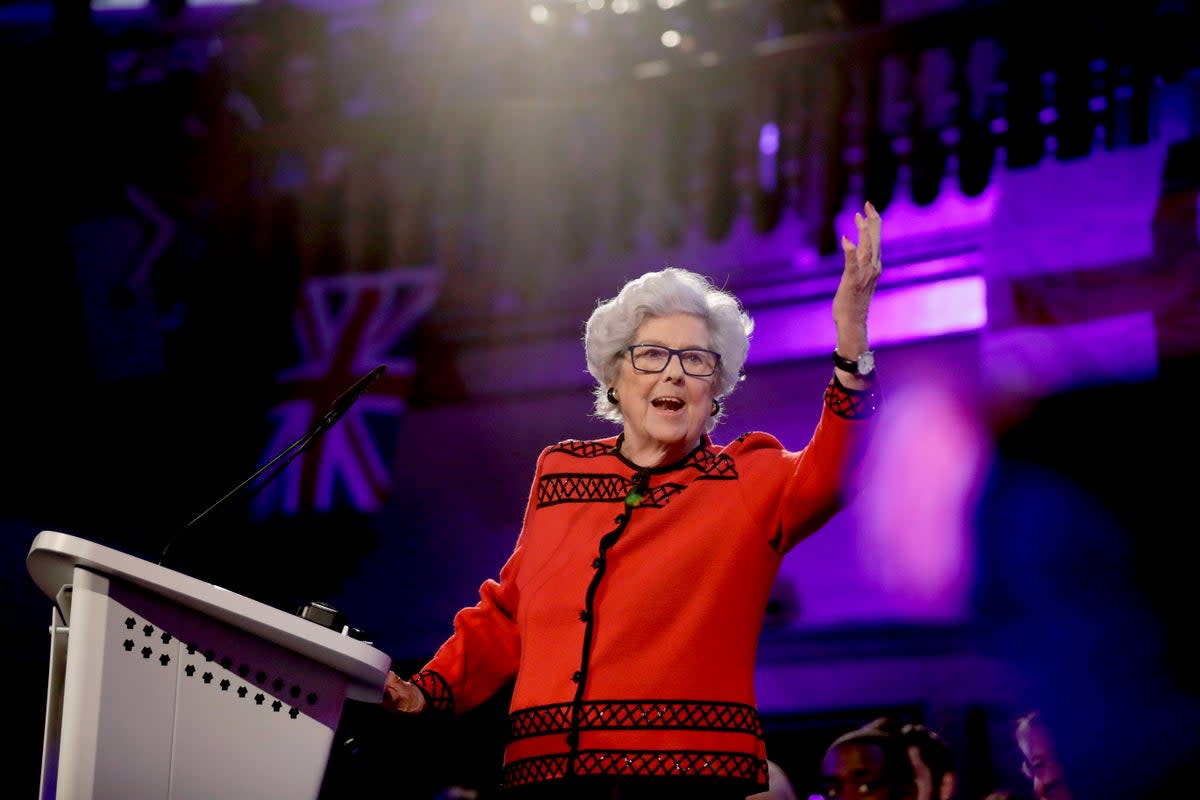
She stayed for a few months, and was invited by Barbara Castle to work for her in the House of Commons. Since MPs’ resources were meagre, Boothroyd suggested she should work half-time for Geoffrey de Freitas. That her employers came from different Labour Party stables was to be of great importance later, as Boothroyd straddled Bevanite Left and Establishment Right.
From Castle, Boothroyd learned of the advantage of getting on to the NEC of the Party. From de Freitas, she was imbued with a pro-European spirit. For all their lives she remained close to Geoffrey and Helen de Freitas, and it was Geoffrey who encouraged Boothroyd to get involved in reaching out for the lowest rung of the Speaker’s and Committee chairmanship ladder, which she was to ascend to the very top.
But it was Barbara Castle who gave Boothroyd the encouragement in 1957 to go for a Selection Conference at Leicester South East, weeks after she had gone to John Anson, the Yorkshire Regional Organiser, to be considered for a seat, and been rebuffed with “Eeh lass, don’t just sit there looking at me with those big brown eyes, you want to go off and get some age on your shoulders first!”
Perceived to have done well in Leicester, she was selected for winnable Peterborough in October 1959, and despite managing to unite the local party, lost badly to Harmar Nicholls, by 27,414 to 22,830. Unable to find a winnable seat in 1964 or 1966, in June 1968 she was selected for the Nelson and Colne by-election. And, despite the government’s difficulties, it was felt that Boothroyd ought to have won.
The fact that she lost badly again, by 10.5 per cent of the vote, to David Waddington, later chief whip and home secretary, was partly attributed to her all-too-obvious efforts to distance herself from her very left-wing but very much loved predecessor, that considerable parliamentarian Sidney Silverman.
Yet again, in 1970, she was to lose a seat held by one of the leading figures in the Labour Party, Tony Greenwood. The party began to think of Boothroyd as a born loser. However, her chance – certainly her last chance – came in May 1973 in West Bromwich when Maurice Foley, an ex-minister, scampered off to Europe.
Boothroyd’s resilience as a perennial loser was, in Dalyell’s opinion, due to the kindness of a man who was their colleague on the first Labour delegation to the European Parliament (1976-79), Lord Walston – a farmer, and socialist, and a millionaire several times over.
Before becoming an MP, Boothroyd had worked for Lord Walston at his mock-Georgian home, Newton Hall, in Cambridgeshire. His eldest son Oliver, the broadcaster and grain farmer, told Dalyell: “My father was a strange man. He was a wannabe politician who tried very hard to get into the Commons but never succeeded. Eventually, he became a life peer, and spent most of his life wondering who he was going to have lunch with the next day among the movers and shakers. And Betty’s primary job, at least it looked like it from my point of view, was arranging those lunches.”
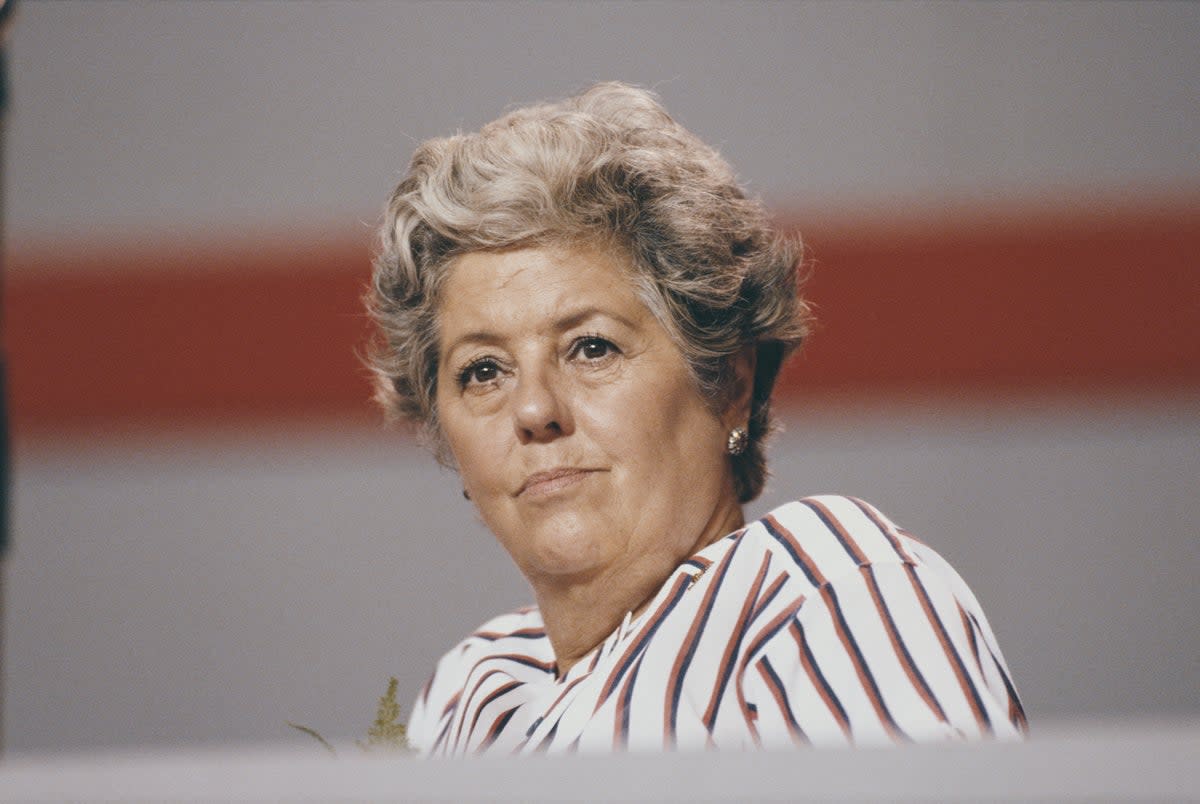
Boothroyd thus came into contact with not only most leading Labour politicians and Tories, too, but with a gaggle of glitterati – good training for being chatelaine of Speaker’s House and welcoming a never-ending flow of Inter-Parliamentary Union and other dignitaries from all quarters of the globe. Boothroyd was a superb hostess, and this role far outweighed, in terms of international advantage to Britain, any grumpiness any MPs may have felt about lack of grip over Commons questions and prime-ministerial clowning.
After Walston died in 1991, her home remained a smallish house, not far from Newton Hall, on a piece of ground that was part of the Walston estate. In 1999 she successfully sued The Daily Express and The Spectator when they suggested there was something improper in her relationship with Harry Walston. Dalyell recalled that, late on a Strasbourg night, Boothroyd told him, “There is one thing that I would never do, and have never done – that is, to injure, or be seen to injure, anybody else’s marriage, however much I might feel like being cuddled!”
For many, including Boothroyd herself, the abiding memory of Betty Boothroyd is that of her, clad in Speaker’s gold braid and robes arm-in-arm with an unsteady Nelson Mandela descending the red-carpeted steps of Westminster Hall to the platform before his great speech to the two Houses of Parliament on 11 July 1996. Boothroyd recalled to the throng of dignitaries that she had been a “black sash” protester outside South Africa House in Trafalgar Square during the years of apartheid. “Today, President Mandela, you will be going to South Africa House, where you were vilified, but this time as Head of State.” It was Boothroyd’s greatest hour, and she spoke and conducted herself in a way which made all those present and the millions watching on television proud of Britain.
In 1999-2000, there was much muttering against Boothroyd by women MPs of the 1997 intake whose ire had been aroused by her somewhat dismissive attitude to the MP for Swindon South, Julia Drown’s breastfeeding of her baby in a Commons Committee. They forgot, or simply did not know, that Boothroyd had been all her life at the forefront of the struggle on women’s pay and conditions. Her speakership came to be seen as a triumph for women in a way that Margaret Thatcher’s premiership, whatever else it might have been, produced no such perception as far as women were concerned. Yet, for all her belief in the advancement of women, Boothroyd was Old Labour in disapproving of all-women shortlists at selection conferences for Members of Parliament.
Elevated to the House of Lords, she was immensely popular among peers of all parties, and referred to the Commons votes on Lords reform as “more pantomime than Parliament.” As a mid-octegenarian she led the campaign to protect the authority of the Clerk of the House of Commons, as well as championing the ban on opinion polls near elections. Betty Boothroyd brought honour to Parliament.
Betty Boothroyd, politician and former House of Commons speaker, born 8 October 1929, died on 26 February 2023.
